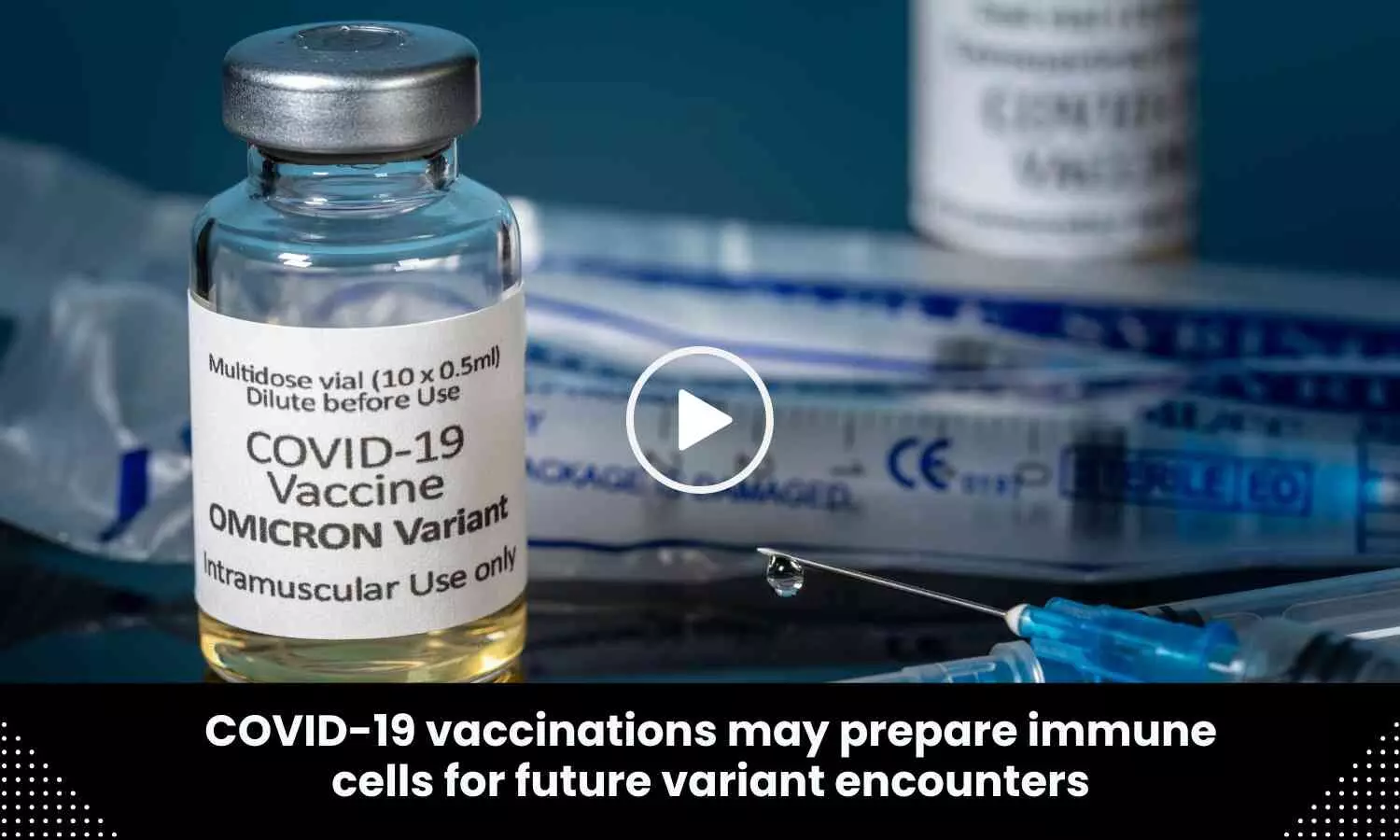COVID-19 vaccinations may prepare immune cells for future variant encounters: Study

Researchers from the Perelman School of Medicine at the University of Pennsylvania showed that the antibody responses to new SARS-CoV-2 variant infections and vaccinations are powerfully shaped by prior exposures to earlier SARS-CoV-2 vaccines. The findings were published online in a study published in the journal Immunity.
The researchers analyzed antibody responses in people infected with or vaccinated against the relatively new SARS-CoV-2 variants BA.5 and XBB and found that even though BA.5 and XBB are very different from the original “ancestral” version of SARS-CoV-2, the responses to these newer variants came almost entirely from the B cell repertoire that was already in place due to prior vaccinations against the ancestral strain.
“Detailing how SARS-CoV-2 immune history influences the antibody response to new variants, through studies such as this one, will ultimately help us design more effective vaccines,” said study co-senior author Scott Hensley, PhD, a professor of Microbiology at Penn Medicine.
The study investigated how prior exposure influences antibody responses to SARS-CoV-2 variants BA.5 and XBB, both highly transmissible and differing significantly from the original virus. Boosters targeting these variants were introduced in 2022 and 2023.
“Prior vaccinations are highly beneficial for establishing memory B cells that can be rapidly recruited to produce neutralizing antibodies against new SARS-CoV-2 variants,” said Hensley.
Researchers found that individuals who initially had lower numbers of B cells elicited by the ancestral variant were more likely to produce totally new, variant-specific antibodies. More importantly, people who had high numbers of B cells against the ancestral SARS-CoV-2 strain were more likely to mount effective immune responses, which were mostly cross-reactive, to the BA.5 and XBB variants.
The main implication of the findings was that immunological imprinting from the original ancestral SARS-CoV-2 strain had a significant impact on the antibody responses to the BA.5 and XBB variants and boosters based on them. These responses still appear to be protective, but it is unclear that that protection will remain robust as SARS-CoV-2 variants continue to evolve.
“Most people alive today have been immunologically imprinted by ancestral SARS-CoV-2, but that will inevitably change as time goes on. We need to continue studying how different prior exposures impact immunity to new variants that come down the road, and how this immunity affects viral evolution.” concluded Hensley.
Reference: Timothy S. Johnston, Shuk Hang Li, Mark M. Painter, Daniel C. Douek, E. John Wherry, Scott E. Hensley; Journal: Immunity; DOI: 10.1016/j.immuni.2024.02.017
